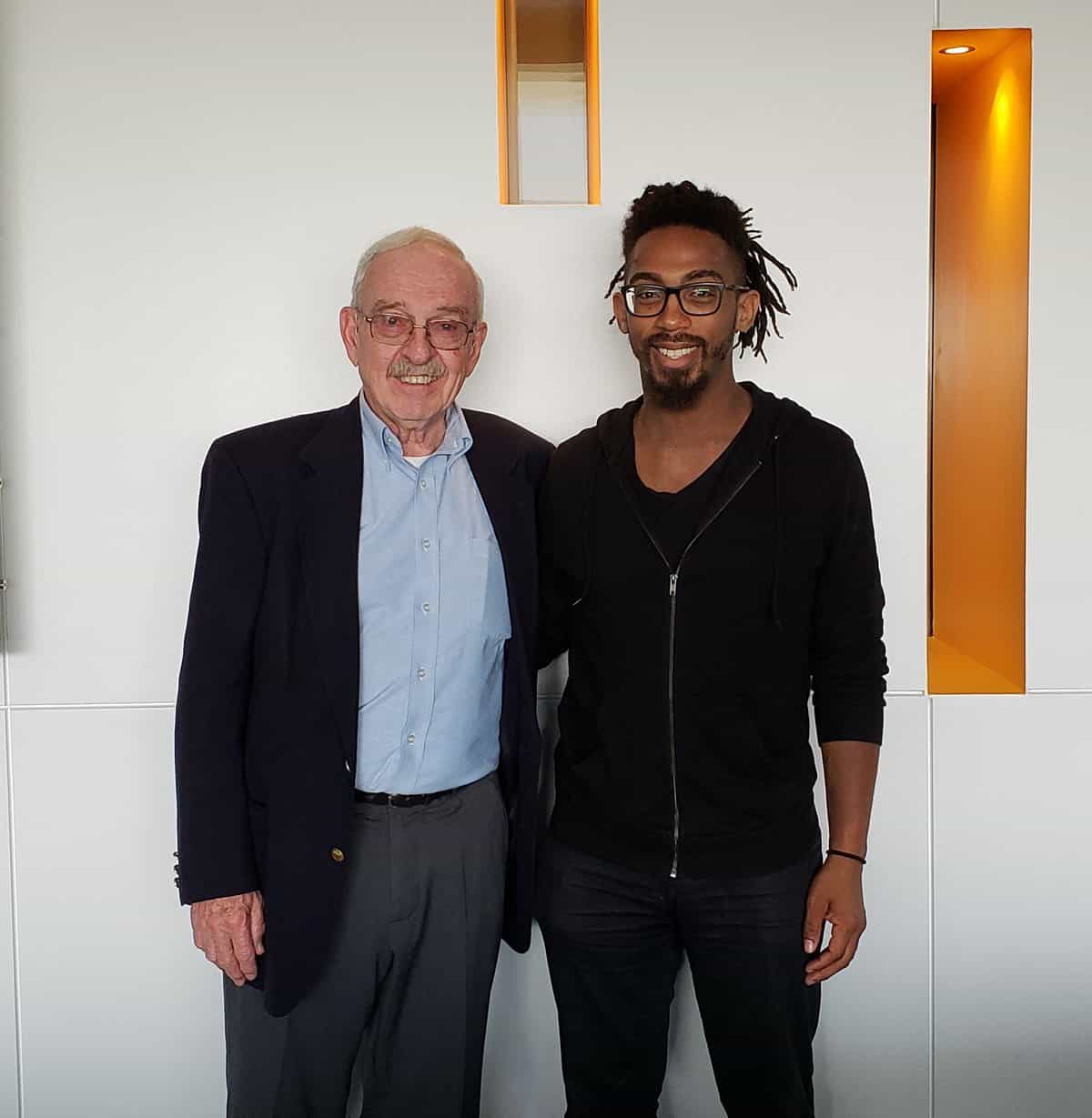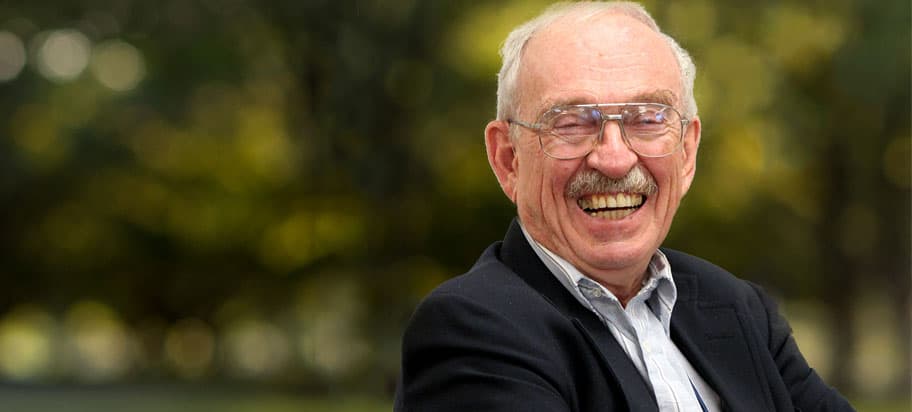
Ron Sider is retiring from teaching at Eastern University and Palmer Theological Seminary! In his honor, we’ll be running some of the “best of” by and about Ron on the CSA website this week. (Scroll down to the end for details on Ron’s farewell lecture and retirement celebration!)
At the time, the thought of dozens of evangelicals, young and old, convening to meet and talk about economic injustice, racism, gender equality, and other social justice issues was unheard of. But that is what happened in Chicago, in 1973. Some of today’s most prominent justice advocates of evangelical faith risked the stigma of being associated with the Civil Rights Movement, to formulate and affirm what is known today as The Chicago Declaration of Evangelical Social Concern.
This year marks the 45th anniversary of The Chicago Declaration. Looking back on this historic event, I talked with Ron Sider, founder of Christians for Social Action, about his hopes and dreams for the future of evangelical social action.
Andre Henry: Given the current renewed interest in social movements in American culture, what role do you think American evangelicals can and should play during this historic moment?
Ron Sider: Evangelicals in the United States make up a huge block of the country. For better or worse, the US is enormously influential globally. If we’re going to be guided by the Scriptures and by Christ as Lord, then we ought to be taking biblical values into the public square, and teaching to shape the nation in a way that moves the country and the world in that direction.
Andre Henry: When someone says “bringing biblical values into the public square,” people think of two extremes: Some Christians think “you’re trying to build God’s Kingdom in your own power,” while many non-Christians (and some Christians, too) think “you’re trying to build a theocracy.” Is there a third way?
Ron Sider: The starting point is that Christ is Lord. So, our loyalty to the global body of Christ ought to be a higher loyalty than our loyalty to our nation, for example. We certainly ought to be committed to Christ and say no to any political or national things that contradict what Jesus calls us to do.
Our loyalty to the global body of Christ ought to be a higher loyalty than our loyalty to our nation.
It’s also true that everybody is a citizen of a nation. In this country, where we have a democracy, we have the freedom to shape what happens in the country. Just because Christians try to flock to other people in the society and say, “Here’s what we think would be a better way to go,” in terms of public legislation and policy, that doesn’t mean we’re violating the separation of church and state.
We need to assert the religious freedom of everybody and welcome everybody into the public square. It’s perfectly fine for Christians, among others, to say what we think would be good policy with regard to any number of things.
Andre Henry: You probably saw the statement from John MacArthur and others on social justice that was circulating the Internet in the past week or so, denouncing all kinds of activism. What was your response?
Ron Sider: First of all, I agree with the statement that the Bible should be the final authority for Christians. I agree that sometimes, some Christians get so focused on social justice that they forget about evangelism. ESA has been trying to say for decades we need to work at both, and not forget either one.
But there are stunning kinds of problems [with MacArthur’s statement]. One thing, it’s written by a bunch of men. To make a statement at this point in time, and make it only by men, is a stunning kind of failure.
Additionally, they deny the claim that working for justice is integral to the gospel or primary to the mission of the church. That’s a failure to understand what Jesus meant by the “good news” of the kingdom. It’s also to ignore what the evangelical world, globally, has been saying vigorously for years. Exercising social responsibility or social justice is one central part of what Christians are supposed to do.
Finally, the statement on racism is dreadfully inadequate. There’s no sense of repentance for the centuries-long evangelical involvement in racism. Many evangelicals defended racism. Many evangelicals had slaves. It’s simply amazing, at a time when 81% of white evangelicals voted for a person who was blatantly racist in his appeals, to talk about racism and not be confessional, and not say, “We must repent of a long history.”
Andre Henry: Do you feel that this is a revelatory time for evangelicalism?
Ron Sider: I think there’s no question that the integrity of the evangelical community has been fundamentally undermined.
In the black community, they don’t use the world “evangelical” because evangelicals have been racist for so long. But they’re Bible-believing, theologically; they’re fully evangelicals. The Hispanic protestant community, again, solidly evangelical. The growing Asian-American community, it’s sizeable and solidly evangelical.
The truth is that 40-45% of the evangelicals in this country are not people who supported the racism [displayed in the 2016 election]. And a significant minority of white evangelicals do see what’s going on, and are appalled by the racism and the attitude toward immigration and tax cuts that just benefit the rich. A large number of evangelicals, in fact, are not doing what 81% of white evangelicals did in 2016.
One of the tragedies is that the media is overwhelmingly portraying to the public that evangelical means “Religious Right,” the people who saw no problem voting for someone who was racist and anti-immigration.
Andre Henry: What should evangelicals that don’t fit that media profile be doing right now?
Ron Sider: I think we should be doing everything we can to say to our brothers and sisters, who we think are not fully biblical, “Can’t we sit down and talk? Can’t we go back to the Bible together and look up what the Bible says about God’s concern for the poor, and about God’s concern for the sojourner, and so on?”
Second, we need to be saying to the media, “You’ve got it wrong if you suggest that white evangelicals represent almost all evangelicals in this country. They represent maybe 50 or 60%. There’s a huge block of people who in fact are evangelicals, who are concerned about justice for the poor, are horrified with racism, believe in the dignity of women, care for creation.”
To make a statement at this point in time, and make it only by men, is a stunning kind of failure.
Andre Henry: 45 years ago, you played a key role in bringing a group of evangelicals together in Chicago to sign a declaration for social justice, the Chicago Declaration of Evangelical Social Concern. Why was that?
Ron Sider: I was a young evangelical at the time, and I was concerned about economic justice and racism and so on. The Chicago Declaration was an amazing document that called together young evangelicals and older evangelicals, and we agreed upon a statement that to this day is still pretty important and relevant.
Andre Henry: For a new gathering around the Chicago Declaration, where younger justice advocates are coming together, what would you hope might emerge?
Ron Sider: One of the results of the meeting 45 years ago was that there was enormous publicity with major papers: The Washington Post, The Chicago Sun-Times, Time Magazine. It was the first time in maybe the century that evangelicals spent three days talking about social justice. Massive interest—precisely because it was evangelicals talking about the evil of racism, the evil of economic injustice, and ignoring of the dignity of women.
I would hope that one result of a new meeting would be that the national media would better understand the fact that there are large numbers of evangelicals that simply are appalled by the current political stance of people like Franklin Graham and Robert Jeffress. But most of all, I think that we’ll have to talk and pray and listen to each other, in the Spirit, and see what we feel needs to be said.
 Andre Henry holds a B.A. in Practical Theology and an M.A. in Theology with an emphasis in Biblical Languages. He’s passionate about music, faith, racial justice, and social change. Follow him on Twitter @andrehenry.
Andre Henry holds a B.A. in Practical Theology and an M.A. in Theology with an emphasis in Biblical Languages. He’s passionate about music, faith, racial justice, and social change. Follow him on Twitter @andrehenry.

It is with great pleasure that we invite you to attend the celebration of Ron Sider’s retirement from teaching at Eastern University/Palmer Theological Seminary, on Friday, May 3, at 3:00 p.m.
Over the course of his long and storied career, Dr. Sider has been changing the way that Christians think about social justice. Please come and help us celebrate his work and his legacy!
We will hear Dr. Sider reflect on his decades spent learning, leading, and inspiring, in his retirement lecture: “My Journey with Rich Christians.” Dr. Sider will also be signing books.
We hope to see you there!
Co-hosted by Palmer Theological Seminary and Christians for Social Action
Click here to purchase event tickets!
PS: If you are unable to attend, would you consider a gift in Ron’s honor to help us preserve his work for future generations?


